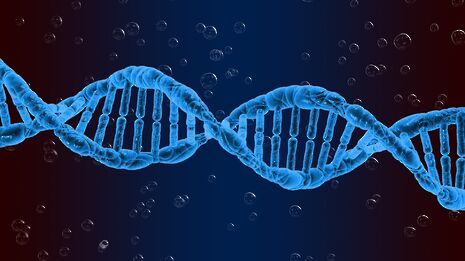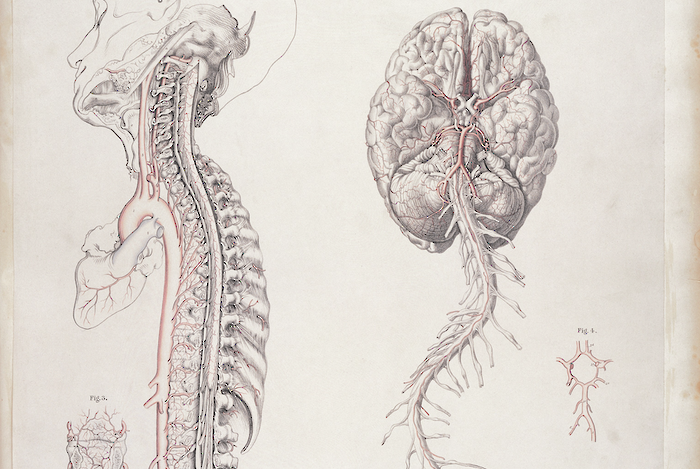It’s time to stop stereotyping obesity
Vianca Shah explores the genetic underpinnings of obesity

Content Note: This article contains discussion of weight-related bullying and body image issues, as well as weight loss
The term obese is defined as having a BMI over 30. By that definition, our country is experiencing an obesity crisis – expected to affect 1 in 4 adults, and 1 in 5 children aged between 10 to 11. By 2020, this figure is expected to rise to almost half of all children of that age.
Apart from the heavy stigma that comes with obesity, individuals face the risk of health conditions such as type 2 diabetes and heart disease. But often, things are not as simple as they seem – society has characterised obese individuals as ‘lacking willpower’ or ‘lazy’, but recent research is suggesting that there are several genetic links to the condition. In some individuals, certain genes have been identified as increasing the risk of obesity from a young age. For example, the ‘Genetics of Obesity’ study led by a team at the Institute of Metabolic Science at Addenbrooke’s Hospital is geared towards identifying more and more of these genetic markers and factors – so far mutations in 12 different genes have been identified. In doing so, treatments for some of these conditions (for example, congenital leptin deficiency, where newborn babies suffer from constant hunger and gain weight rapidly) can be developed.
Professor Sadaf Farooqi in Cambridge has recently published a study in PLoS Genetics looking at the other side – some thin individuals seem to be able to eat as they like, and yet gain little weight. Being able to understand their physiology can help scientists understand what could be done to treat obesity or mimic similar biochemistry in obese or overweight patients without subjecting them to excessive dieting or difficult exercise programmes. In this case, 74% had a family history of being thin and the study highlighted certain genetic factors that were more prevalent in ‘thin’ people.
The brain has to be considered in another way too. Obesity can put mental strain on an individual and their livelihood. Many sufferers attempt diets and exercise regimes which are stressful and impact their self-confidence and wellbeing. In any treatment for obesity therefore, it is vital to consider what the psychological impact to that person would be. Being labelled as ‘obese’ can primarily have serious social and personal consequences and in considering the obesity epidemic, the spread of obesity-related mental health concerns must also be considered. In fact, research has suggested that even between links like these, such as between depression and obesity, genetics may play a role.
For children in particular, this epidemic is of major concern. Children with obesity are predicted to experience a 63% higher (2017) chance of bullying at school-age. Children experience estrangement from their own family and friends, which can have a serious knock on their body image. Education around the stigma around obesity is needed so children (and adults too) do not perceive themselves as a failure for not being able to change their appetite or lifestyle.
Perhaps the real epidemic is not the absolute number of individuals – but the consequences and knock on effects that these numbers have. Fighting this epidemic will involve education, treatment and a range of other strategies to help not only reduce the risk of other chronic conditions, but to alleviate the other stresses that come with a diagnosis.
At both a personal and a governmental scale, action can be taken. For example, behavioural changes can be induced by simply making menu labelling mandatory, a study at the Centre for Diet and Activity Research at Cambridge has found. Of 100 UK chain restaurants analysed, only 14 had provided menu labelling in stores on the nutritional and energy information of the products they were selling. Some restaurant items were found to exceed entire daily requirements of energy – making such procedures mandatory could allow the public to make an informed choice.
Obesity may be defined as simply a BMI above 30, but in reality the epidemic is much more than that. Dr Giles Yeo’s recent book ‘Gene Eating’ exemplifies this – that this ‘one size fits all’, as he explains, approach to dieting and obesity is not viable. And what really obesity is about – to him a person who is obese is not simply a person of a certain weight to height ratio. Appearance and categorisation alone do not define a person as obese. Obesity to him, is the state in which this ratio is at such a limit that the risk of these chronic conditions is increased.
It is high time for us to stop stereotyping obesity – both its causes and treatments and start supporting those at risk. Only together, can this ‘epidemic’ in this way be controlled.
 Features / Should I stay or should I go? Cambridge students and alumni reflect on how their memories stay with them15 December 2025
Features / Should I stay or should I go? Cambridge students and alumni reflect on how their memories stay with them15 December 2025 News / Cambridge study finds students learn better with notes than AI13 December 2025
News / Cambridge study finds students learn better with notes than AI13 December 2025 News / Dons warn PM about Vet School closure16 December 2025
News / Dons warn PM about Vet School closure16 December 2025 Comment / The magic of an eight-week term15 December 2025
Comment / The magic of an eight-week term15 December 2025 News / News In Brief: Michaelmas marriages, monogamous mammals, and messaging manipulation15 December 2025
News / News In Brief: Michaelmas marriages, monogamous mammals, and messaging manipulation15 December 2025









